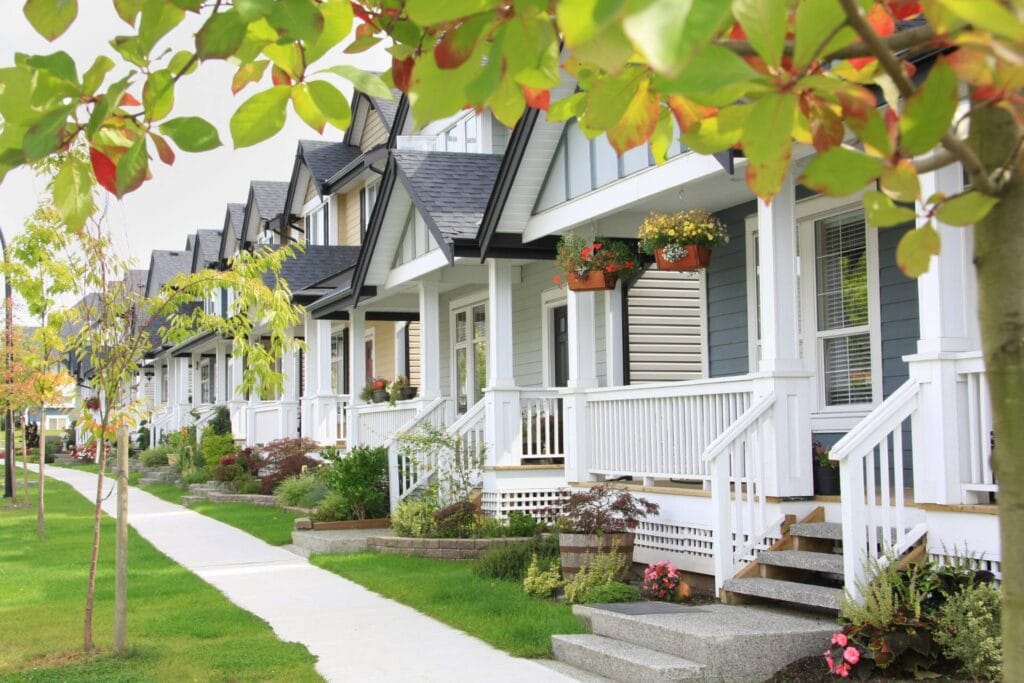Many Americans are concerned that we are entering a recession. Because of our recent history, this potential recession has many worried about a housing crisis. But as we will show, a recession (whether we are in one or not), does not automatically mean a “housing crisis.”
Does a Recession Equal a Housing Crisis?
Are we in a recession? Will this mean a housing crisis? It’s a massively complex issue, but we can start by defining the terms…
Housing “Crisis” Can Mean Different Things to Different Buyers
Before we can fully explain why a recession does not automatically mean a housing crisis, we need to define the terms. The term “recession” has been debated and politicized, but everyone agrees that a recession is an economic slowdown of some kind. (What’s debated, essentially, is if our current cycle counts as a recession.)
But what do we mean by “crisis?” Unfortunately, it could mean many things. A complete lack of available homes (no inventory) could be considered a crisis. So could massive interest rates or out-of-control housing costs. In California, for example, the massive spike in home prices has made rent nearly unaffordable, creating what many have deemed a crisis.
But it seems that when most people are referring to a housing crisis in relation to a possible recession, they are discussing a drop in prices. (Which is, ironically, the opposite of California’s “housing crisis,” which is marked by high prices.)
A housing crisis, for this discussion, seems to center around the value of homes dropping quickly.
So let’s frame the question another way: does a recession automatically lead to a drop in housing prices? The answer is clearly no.
Do the Numbers Indicate a Housing Crisis?
There are clear numbers that indicate a recession does not, historically speaking, mean an inevitable drop in home prices. CoreLogic, one of the most respected housing-information sources, looked at housing prices throughout all economic recessions since 1980. They found that during six recessions since 1980, home prices tended to go up, not down, with one major exception that skews the numbers and, it seems, our perceptions.
|
Recession Year |
Price Change |
|
1980 |
+6.1% |
|
1981 |
+3.5% |
|
1991 |
-1.9% |
|
2001 |
+6.6% |
|
2008 |
-19.7% |
|
2020 |
+6.0 |
As you can see from the above data, in four of the past six recessions, there was a steady increase in housing prices. In half of the official recessions, housing prices still grew by 6% or more.
Housing prices fell in only two recessions. One of those saw a mild decrease, while the other saw a massive drop. However, the 2008 recession was clearly a unique situation. During this economic hardship, housing was not just impacted by the recession It was, according to many, the cause of the recession.
2008 Was MUCH Different Than 2022
Part of the reason, it seems, that so many people are concerned about housing is that recent memory tells us that economic recessions come alongside drops in housing prices. The most recent recession outside of 2020 and COVID, which was its own situation altogether, was 2008, a time that many still remember well.
However, this recession, it’s largely believed, was caused by housing. Leading up to 2008, mortgage lending was fairly loose. Homebuyers could get home loans for which they barely qualified, and could only afford if everything went perfect.
This loose lending did many things: first, it created a market where virtually anyone could purchase a home. Because more homebuyers could qualify for lending, there were more buyers in the market. Demand was high, so prices went up and up and up, creating an economic “bubble,” a situation where the price of something is artificially high.
When the market slowed due to a variety of reasons, a snowball effect was created. People could not repay their loans, putting banks at risk, which led to tight lending, which hurt business development, and on it went. (This is, admittedly, a highly simplified summary.)
2022, however, is much different. The exact causes are still being discussed, but shutdowns and a worker shortage have surely played a part. The housing market, it seems, is not in a bubble like it was in 2022. Prices are high because people who can reasonably afford the homes want the homes. This was not the case in 2008, as many could not, as we know now, reasonably afford the home in which they were living.
The housing market is different. Demand is different. The economy and jobs and purchase processes are all different. 2022 is simply different than 2008.
So…What Could this Recession Do to the Market?

Whether we are in an official recession or not has yet to be decided. Terminology aside, all agree that we are in tough economic times. The impact this recession or slowdown or stagnation will have on the housing market has yet to be seen.
It’s anyone’s best guess, but current economic trends could cause an overall cooling in the market, which may not be horrific. Housing in California and numerous other areas has become unaffordable; could the current economic trends create a cooling and lead to lower prices?
There may be a dip in home prices, but it will probably be a mild, temporary dip. It’s safe to assume that it won’t cause a catastrophic reduction in home prices like the “Great Recession” of 2008.
Is Now a Good Time to Buy?
There is a lot going on in the market. Housing prices could continue to accelerate, or they could level off. Interest rates, on the other hand, will likely continue to increase.
If you are personally prepared to purchase a home, it’s a good time to buy. Assuming you have a strong income, a steady budget, a reasonable debt load, and a good downpayment, it really is a fine time to purchase. In fact, it may be a good time to purchase, as interest rates will probably go up while housing will likely increase or stay the same.
But you need to be ready to make the purchase. Whether we are in a recession or not, the most important factor is you.
Want to learn more about affordable mortgages and low interest rates? Contact our team today and we’ll help you find the right loan for your needs and budget.
From jumbo loans for large country estates to small mortgages for a starter house, we are ready to serve all of your needs!


